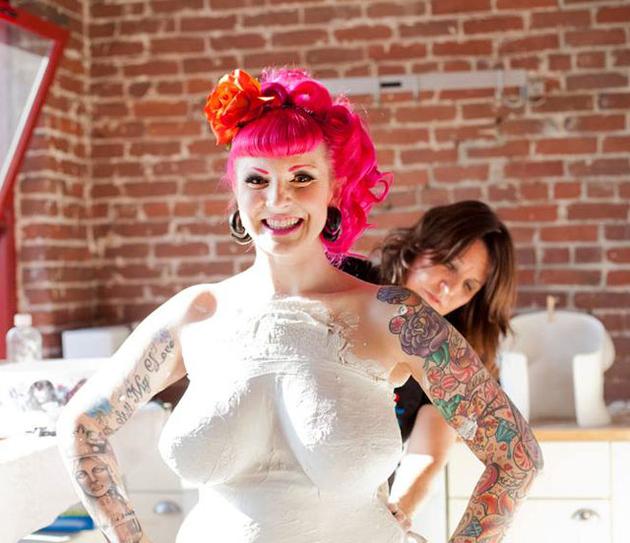10 Breast Cancer Myths Totally Debunked!
It’s World Cancer Day! Hopefully there will come a time when this day is no longer necessary, but until that day we’d like to help debunk some breast cancer myths. We’d like to present the 10 Breast Cancer Myths Totally Debunked!
Myth 1: You can’t get breast cancer if you don’t have family history.
Debunked: Unfortunately anyone can get breast cancer. Approximately 70% of women with breast cancer had no identifiable risk factors. Having a first-degree family member (parent, sibling, or child) with breast cancer doubles your risk, but you can get the disease without any family history.
Myth 2: Women with large breasts are more likely to develop breast cancer.
Debunked: Breast size doesn’t contribute to breast cancer, but breast density does. Breasts with a higher density have an increased likelihood of developing breast cancer. The only sure way to know your breast density is to get a mammogram, but breast density is typically lower in large breasts. (See the infographic from our friends at GE at the bottom of the post on myths surrounding breast density.)
Myth 3: Men can’t get breast cancer.
Debunked: Over 2,000 cases of male breast cancer are diagnosed in the U.S. every year. Although it is less common in men than in women, breast cancer can affect anyone. Signs dudes should look for include nipple discharge, lumps or swelling, or skin dimpling or puckering.
Myth 4: Diet and lifestyle don’t affect your risk of breast cancer.
Debunked: Poor diet increases your risk by 23%, smoking by 20% and lack of exercise by 20%. To help decrease your risk eat a healthy diet, get plenty of exercise, and put down those cigarettes!
Myth 5: Wearing a bra gives you breast cancer.
Debunked: Keeping your girls supported doesn’t increase your risk, but an improperly fitted bra could. An ill-fitting bra can impede lymphatic fluid drainage and increase your risk of breast cancer. So make sure you get a proper fitting before you purchase your next bra (don’t forget sports bras!) and you’ll not only decrease your risk, but your girls will look great too.
Myth 6: Cell phones only contribute to brain cancer, not other cancers.
Debunked: Cell phones have been linked to lower sperm count in men who carry their phones in their pockets, and could also be linked to increased risk of breast cancer. While there’s not a lot of evidence linking cell phone use to breast cancer we believe it’s better to be safe than sorry. So carry your phone in your purse instead of your pocket, switch ears often while you’re using it, and never fall asleep with it on your body.
Myth 7: Young women don’t get breast cancer.
Debunked: You can get breast cancer at any age. Over 11,000 women under 40 will be diagnosed with breast cancer each year. Although it is less common in young women it can happen to anyone. Make sure to check yourself monthly and be on the lookout for any changes in your body.
Myth 8: Fake boobies increase your risk of cancer.
Debunked: Women with breast implants are not more likely to get breast cancer, but they may require further screening in addition to mammograms, which are not as effective on women with implants. Be sure to do any and all screenings recommended by your doctor.
Myth 9: The only visible sign of breast cancer is a breast lump.
Debunked: Breast cancer can manifest itself physically in a number of ways. Symptoms include nipple discharge, breast swelling, scaliness, or a lump in the underarm area. It’s very important to be familiar with your body to help you notice any changes.
Myth 10: Testing positive for the BRCA1 or BRCA2 gene means you will get breast cancer.
Debunked: While testing positive for the "breast cancer gene" does mean your risk of developing breast cancer rises to 60%, it does not mean you will get it. Marisa Weiss, M.D. states that “Simply having a proven gene abnormality does not necessarily mean that a woman will develop breast cancer, or that her cancer will be any worse than cancer that does not stem from an inherited genetic flaw.” Educate yourself!

